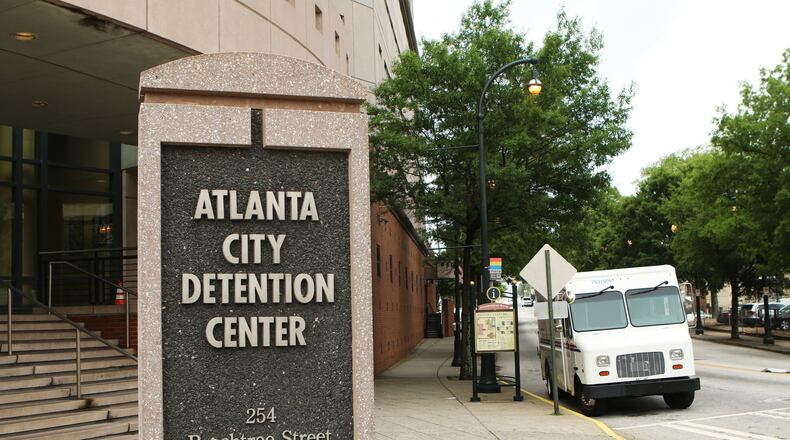Nearly a year after its creation, the Atlanta City Jail task force has recommended closing the jail, demolishing the building and replacing it with a Center for Equity that would support Atlantans’ needs.
The 26-page report was delivered to Atlanta Mayor Keisha Lance Bottoms on June 12, giving suggestions on how the city can change the institution and convert it into a space to serve Atlanta residents, particularly those from communities most affected by the criminal justice system. The report described a center “that will advance racial and economic equity, promote restorative justice, and invest in the well-being of individuals, families, and communities.”
The 52-member task force suggested any changes to the 11-story facility that can hold up to 1,300 inmates include addressing ongoing justice reform and the city's employment and housing concerns. The suggestions were compiled after a series of public hearings, community outreach and group meetings.
While the a new use for the jail is yet to be decided, the task force also recommended four design options ranging from a $40 million renovation to a $100 million demolition.
Another key part of the recommendations are eliminating city ordinances around activity that does not pose a safety threat or that is already covered by state laws. Some of the crimes recommended for repeal include the city's open container law and animal control laws. The task force also recommended repealing state laws around marijuana use and possession, and traffic violations that do not pose an immediate safety concern.
“The overarching recommendation was to decriminalize the city code,” said Xochitl Bereva, who sat on the task force’s policy team, charged with recommending ordinance changes, including the discharge of a firearm within city limits. “That was intended to put an end to the of the kind of policing that led to Rayshard Brooks’ killing.”
The recommendations came hours before the shooting death of Rayshard Brooks by Atlanta police officers and amid social unrest in the city and nationwide. But task force co-chair Marilynn Winn said the suggestions could solve some of the ongoing systemic issues affecting the city concerning policing.
Winn said her organization, Women on the Rise, has advocated for a drop-off center where police can take residents to sober up until it is safe for them to drive home.
“We’ve been screaming for a lot of different things that are now coming into fruition for the city to see,” Winn said. “So hopefully we’ll get the opportunity to work on those initiatives with the Mayor’s Office to build more structure on police training and build more accountability.”
A timeline has not been established for when jail will close but Winn is hoping for a July 1 date and that the building is demolished by September 1.
Changes to the jail could come soon if the city passes the fiscal year 2021 budget, which would reduce the Department of Corrections operating expenses from $18 million to $3.6 million until the jail closes, according to a release from the Mayor's Office.
Once the jail closes, its employees would move to the Mayor’s Office of Constituent Services to broaden and enhance community-based initiatives. The jail’s operating funds would be directed to constituent services and other city departments, according to the release.
The task force's report can be read here.
In other news:
About the Author
Keep Reading
The Latest
Featured



